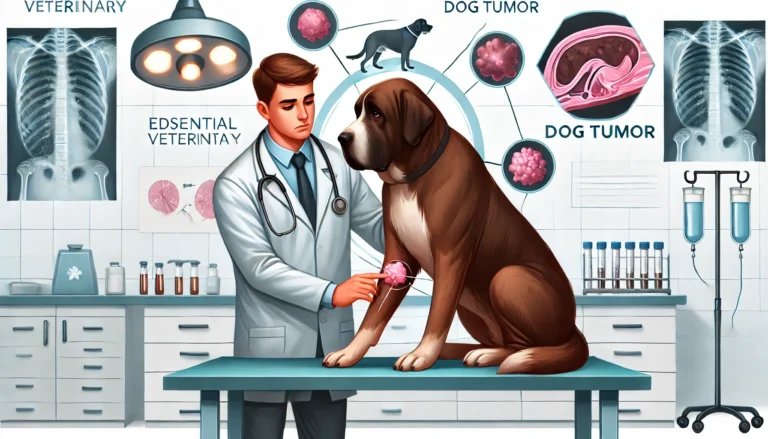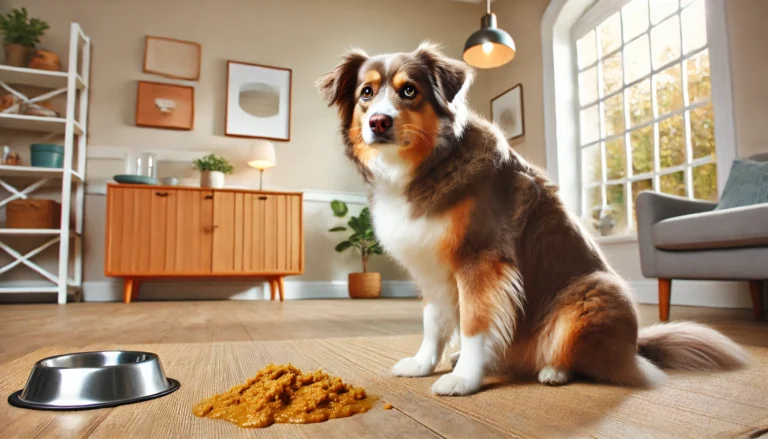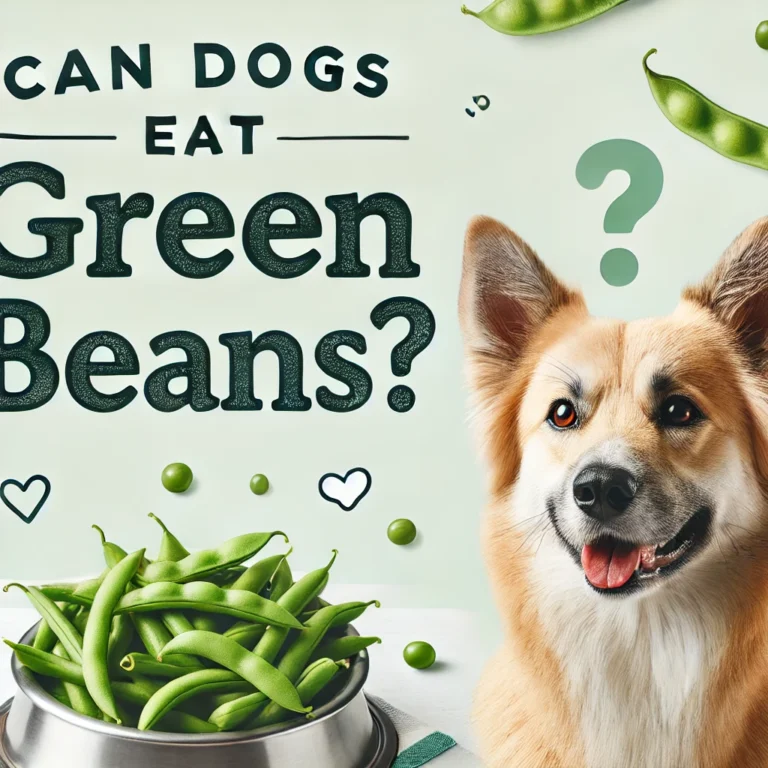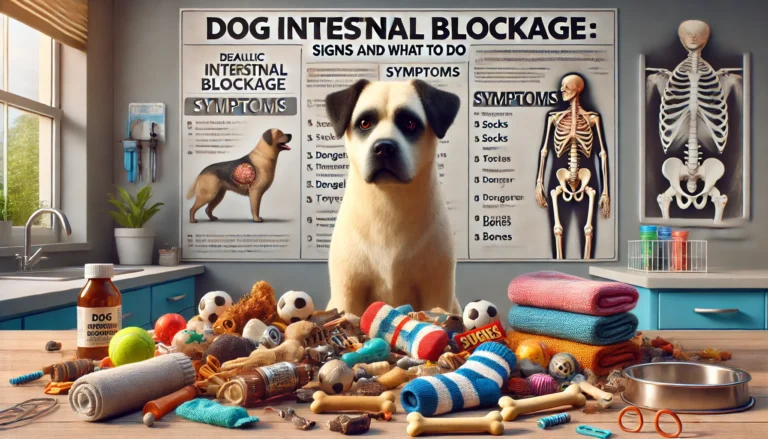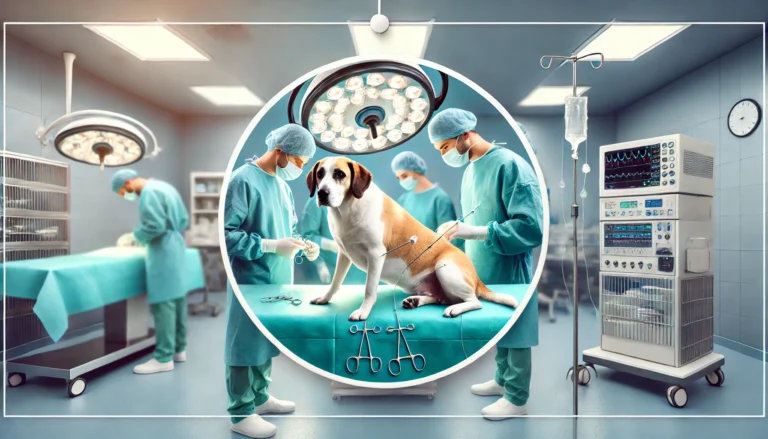Colitis in Dogs-Can you get rid of colitis

Colitis in dogs is a condition characterized by inflammation of the colon, the final part of the large intestine. This condition can result in a variety of gastrointestinal symptoms, with diarrhea being the most common. Colitis can occur in any dog breed, size, or age, but some dogs may be more predisposed to it due to genetic, environmental, or dietary factors. This detailed guide will explore the various aspects of colitis in dogs, including its causes, symptoms, diagnosis, and treatment options, empowering dog owners to understand the condition and provide the best care for their pets.
What is Colitis in Dogs?
Colitis refers to inflammation of the colon, the large intestine in dogs. This inflammation causes irritation in the digestive system, leading to a number of digestive problems. The condition can range from mild to severe and can be acute (short-term) or chronic (long-term). Colitis in dogs affects their ability to properly absorb nutrients from food, often leading to diarrhea, discomfort, and in some cases, dehydration.
The colon’s primary role is to absorb water and electrolytes from digested food. When the colon becomes inflamed, its function is disrupted, causing water to remain in the stool. This leads to watery, loose stools and other gastrointestinal issues.
Types of Colitis in Dogs
Colitis in dogs can be categorized into two main types: acute colitis and chronic colitis. The key difference lies in the duration and cause of the inflammation.
Acute Colitis
Acute colitis refers to a sudden onset of inflammation in the colon. It is often associated with dietary indiscretion, such as eating spoiled food, garbage, or foreign objects. Acute colitis can also result from bacterial infections or stress. It usually lasts for a few days and, in many cases, resolves with appropriate treatment.
Chronic Colitis
Chronic colitis is a long-term condition that persists for several weeks or even months. It is characterized by recurring episodes of inflammation and diarrhea. Chronic colitis can be caused by a variety of factors, including inflammatory bowel disease (IBD), allergies, parasites, and even certain medications.

Symptoms of Colitis in Dogs
The most common symptom of colitis in dogs is diarrhea, often accompanied by other signs such as:
- Frequent, urgent bowel movements: Dogs with colitis often feel the need to defecate frequently, sometimes more than usual.
- Loose, watery stools: Diarrhea is often the first and most noticeable sign of colitis.
- Mucus in the stool: Inflammation of the colon may cause mucus to be present in the stool.
- Blood in the stool: The inflamed colon can lead to small amounts of blood appearing in the stool, often giving it a dark or bright red color.
- Abdominal discomfort: Dogs with colitis may experience bloating, pain, or tenderness in the abdomen, which may lead to whining or restlessness.
- Loss of appetite: Colitis can cause a decrease in appetite, which may contribute to weight loss.
- Lethargy: Due to dehydration from diarrhea and the discomfort caused by colitis, your dog may appear unusually tired or less active.
- Vomiting: While less common, some dogs with colitis may also experience vomiting, especially if the condition is caused by bacterial infections.
Causes of Colitis in Dogs
The causes of colitis in dogs can vary widely, from dietary issues to more complex medical conditions. The primary causes of colitis include:
1. Diet and Food Sensitivities
- Dietary indiscretion: Eating spoiled food, garbage, or foreign objects can irritate the colon and lead to inflammation.
- Food allergies: Some dogs have sensitivities or allergic reactions to certain ingredients in their food, such as grains, proteins, or preservatives. These food allergens can trigger colitis.
- Sudden diet changes: A sudden switch in diet, such as switching from one brand of food to another, can disrupt your dog’s digestive system and lead to colitis.
2. Parasites
Intestinal parasites, such as giardia or hookworms, are common causes of gastrointestinal issues in dogs. These parasites can cause irritation and inflammation of the colon, leading to colitis.
3. Bacterial Infections
Infections caused by bacteria like Salmonella, Campylobacter, and Clostridium can infect the colon, leading to acute colitis. Bacterial infections are often spread through contaminated food or water.
4. Stress
Stress is a well-known trigger for gastrointestinal problems in dogs, including colitis. Major changes in routine, new environments, or traveling can cause your dog’s colon to become inflamed.
5. Inflammatory Bowel Disease (IBD)
IBD is a chronic condition that causes long-term inflammation in the digestive tract, including the colon. The exact cause of IBD is unknown, but it is thought to be related to a malfunctioning immune response to bacteria in the gut.
6. Antibiotic Use
While antibiotics are used to treat infections, they can disrupt the balance of good bacteria in the gut. This disruption can lead to inflammation in the colon and result in colitis, a condition sometimes referred to as antibiotic-induced colitis.
7. Other Underlying Health Conditions
- Cancer: Tumors in the colon or gastrointestinal system can sometimes present with symptoms similar to colitis.
- Pancreatitis: Inflammation of the pancreas can contribute to gastrointestinal disturbances that affect the colon.
- Liver disease or kidney disease: These systemic conditions may lead to gastrointestinal symptoms, including colitis.
How Colitis in Dogs is Diagnosed
Diagnosing colitis in dogs begins with a thorough physical examination and a review of your dog’s medical history. Your veterinarian may also recommend several diagnostic tests to confirm the presence of colitis and determine its underlying cause.
do you know
The Tibetan terrier is a beloved dog breed, known for its beautiful long coat, friendly disposition, and intelligent nature. Originating from Tibet, this breed has become a popular companion animal due to its calm demeanor, hypoallergenic coat
1. Fecal Examination
A fecal exam is used to check for parasites, bacteria, or other abnormalities in your dog’s stool. It is one of the first tests performed when colitis is suspected.
2. Blood Tests
Blood tests can help rule out other conditions, such as infections or systemic diseases, and assess the overall health of your dog, including their hydration status.
3. Abdominal Ultrasound or X-rays
Imaging studies like an ultrasound or X-ray can provide a clearer picture of your dog’s gastrointestinal system, helping the vet identify abnormalities such as tumors, enlarged lymph nodes, or other structural issues.
4. Colonoscopy
In more severe or chronic cases, a colonoscopy may be performed to examine the colon directly. This procedure allows the vet to take biopsies of the colon lining for histopathological evaluation, which can help diagnose inflammatory bowel disease (IBD) or other chronic gastrointestinal issues.
5. Food Trials
If a food allergy or sensitivity is suspected, your vet may recommend a food trial using a hypoallergenic diet to see if your dog’s symptoms improve.
Treatment for Colitis in Dogs
Treatment for colitis in dogs depends on the underlying cause of the condition, as well as the severity of the symptoms. Common treatment strategies include:
1. Dietary Management
For mild cases of colitis, adjusting your dog’s diet can make a significant difference. Your vet may recommend:
- A bland diet, such as boiled chicken and rice, to help soothe the digestive system.
- A hypoallergenic or novel protein diet for dogs with food allergies or sensitivities.
- Fiber-rich foods that promote normal bowel function and help firm up stools.
2. Medications
- Antibiotics: If a bacterial infection is the cause of colitis, antibiotics may be prescribed to eliminate the infection.
- Probiotics: Probiotics can help restore the balance of beneficial bacteria in the gut, promoting healing and improving digestive health.
- Anti-inflammatory drugs: In more severe cases, anti-inflammatory medications may be prescribed to reduce inflammation in the colon.
- Anti-diarrheal medications: These medications help reduce diarrhea and ease your dog’s symptoms while they recover.
3. Fluid Therapy
If your dog is dehydrated due to diarrhea, your veterinarian may recommend fluid therapy. This can be administered either orally or intravenously to restore hydration and electrolytes.
4. Stress Management
If stress is a contributing factor to colitis, your vet may recommend techniques to reduce your dog’s anxiety, including behavior modification strategies, pheromone therapy, or calming supplements.
5. Surgery
In rare cases, surgery may be necessary if there are underlying tumors or severe complications from colitis. This is typically only considered when other treatments have been ineffective.
Preventing Colitis in Dogs
While some cases of colitis are unavoidable, there are several steps you can take to reduce your dog’s risk:
- Avoid sudden diet changes: Gradually transition to new foods to avoid gastrointestinal upset.
- Feed high-quality food: Choose a balanced, high-quality dog food that meets your dog’s nutritional needs.
- Parasite prevention: Keep your dog on a regular parasite prevention plan to reduce the risk of intestinal infections.
- Limit stress: Try to minimize changes to your dog’s routine and provide a stable environment.
- Regular veterinary check-ups: Regular visits to the vet can help catch any early signs of colitis or other gastrointestinal issues.
Conclusion
Colitis in dogs is a condition that can range from mild to severe, but with the right treatment, most dogs recover fully. If your dog shows signs of diarrhea, vomiting, or abdominal discomfort, it’s important to seek veterinary care promptly. Understanding the causes, symptoms, and treatment options for colitis can help you make informed decisions about your dog’s health. By working closely with your veterinarian and following their treatment plan, you can ensure your dog’s comfort and well-being.
How is colitis in dogs treated?
The treatment for colitis in dogs depends on the underlying cause of the condition. The general approach to this topic often includes dietary changes, medication, and possibly probiotic supplements. For mild cases, a bland diet of boiled chicken and rice may be recommended, along with anti-inflammatory medications or antibiotics if infections are involved. For more chronic forms, long-term dietary management and medications to reduce inflammation might be required. Always consult your veterinarian for a tailored treatment plan for your dog’s specific condition.
What foods trigger colitis in dogs?
Certain foods can trigger or worsen colitis in dogs, depending on the underlying cause of the condition. In this topic, common food triggers include fatty foods, dairy, spicy foods, and ingredients to which your dog may be allergic, such as grains or specific proteins like beef or chicken. Additionally, abrupt diet changes or feeding low-quality food can also lead to gastrointestinal distress. Identifying specific triggers requires careful monitoring of your dog’s diet and symptoms, often under the guidance of a veterinarian.
How do I know if my dog has stress colitis?
Stress colitis in dogs occurs when stress or anxiety leads to inflammation in the colon, resulting in diarrhea and abdominal discomfort. In this topic, common signs include frequent diarrhea, mucus in the stool, and sometimes blood. Behavioral changes like restlessness, whining, or changes in eating habits often accompany stress colitis. If your dog is showing these symptoms, it’s essential to address the potential sources of stress and consult your vet for further evaluation and treatment.
What dogs are prone to colitis?
While colitis can affect any dog, certain breeds are more predisposed to gastrointestinal issues, including colitis. In this topic, breeds such as Boxers, German Shepherds, and Bulldogs are known to have a higher risk. Other factors, such as age, diet, and underlying health conditions, can also contribute to a dog’s likelihood of developing colitis. Dogs with a history of food allergies or gastrointestinal problems are especially prone to experiencing colitis.
Is rice good for dogs with colitis?
Yes, rice is often recommended as part of a bland diet for dogs with colitis. In this topic, rice is easily digestible and helps firm up stool, which can relieve some of the symptoms of colitis, such as diarrhea. It’s typically served with boiled chicken or lean meats as part of a balanced, gentle diet. However, rice alone is not a long-term solution, and it’s essential to follow your veterinarian’s advice for a complete treatment plan.

